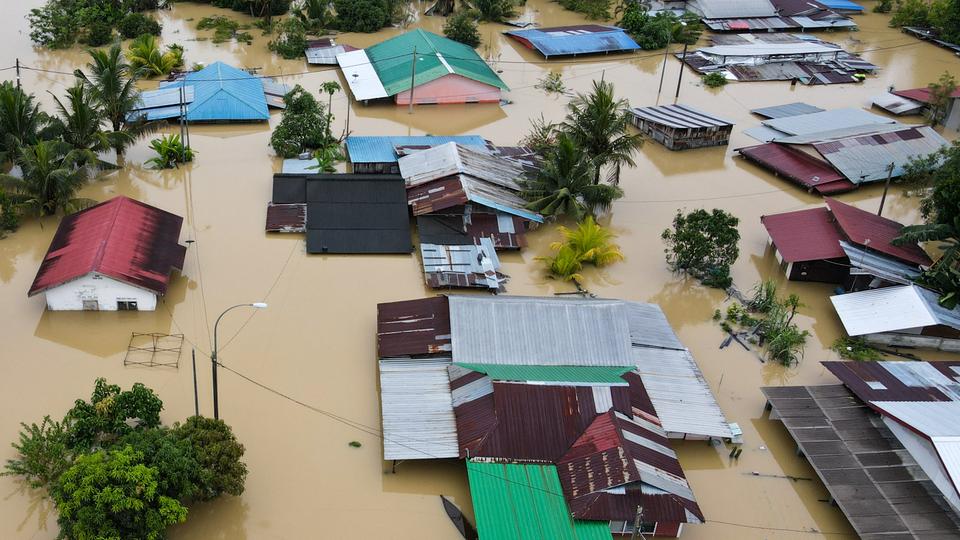Malaysia is facing unprecedented continuous torrential rain from the annual monsoon season that began in November.

At least four people have died and nearly 41,000 were evacuated in Malaysia after floodwaters caused by "unusual" torrential rains lasting days swept through several states, officials hase said.
Local reports and social media posts on Saturday showed images of flooded roads, submerged cars, waterlogged homes and rows of shops closed in the affected areas, mainly in the southern state of Johor near neighbouring Singapore.
The rains have continued unabated, hampering relief efforts.
Police said at least four people have died since Wednesday, including a man whose car was swept away by floodwaters and an elderly couple who drowned.
Nearly 41,000 people from six states, although mostly from Johor, have been evacuated to schools and community centres where food, water, and clothes were provided.The latest fatality was a 68-year-old woman who drowned near her flooded house after she left an evacuation centre in Segamat town in Johor, police said.
In the Johor town of Yong Peng, AFP news agency journalists saw a family wading in brownish waters above knee-deep outside their home, with their children using tyre tubes as floats.
Safiee Hassan, 38, said he and his family managed to save their refrigerator, sofa and some electrical items.
"Other things like our bed, mattress, cupboard, are damaged," he told AFP.
Malaysian Nature Society president Vincent Chow told AFP these were the worst floods to hit Johor since 1969.
"Now, the weather is unpredictable. Climate change has outfoxed the weatherman," he said.
Chow said he had received urgent calls for help from villagers living along a riverbank in Peta village, about 120 kilometres (70 miles) north of Yong Peng.
"People are crying for food and medicine. The only way to provide food and clothes is by air," he said.
'Unusual' rainfall volume
But Meenakshi Raman, president of environmental group Friends of the Earth Malaysia, said the large volume of rainfall is "unusual" at this time of the year, blaming the flooding on the lack of green spaces."Forest and land clearings in the upper reaches of our rural areas, towns and cities lead to our rivers and drains choked with soil erosion and they cannot contain the increased volumes of rainfall," Meenakshi said.
"Moreover, the over-concretising of areas also leads to overflows of water, as there is little green left to act as sponges."
She warned that the people and authorities were "not paying enough attention to increasing our adaptive capacities to these increasing unusual weather events".
The Meteorological Department has warned that the rain could go on until April.
"But we are not doing enough to build our climate resilience by protecting our forests, soils and rivers and creating sponge cities that are able to absorb increasing rainwaters," Meenakshi said."Business as usual approaches must stop and we must reduce and minimise the impacts of such intense rainfalls," she said.
Some victims were fatalistic.
"We just accept this, whatever God has given. What can we do?" said Kabibah Siam, 54.
"We cannot moan about our luck because over here, everyone is going through the same thing."
Social media is bold.
Social media is young.
Social media raises questions.
Social media is not satisfied with an answer.
Social media looks at the big picture.
Social media is interested in every detail.
social media is curious.
Social media is free.
Social media is irreplaceable.
But never irrelevant.
Social media is you.
(With input from news agency language)
If you like this story, share it with a friend!













0 Comments